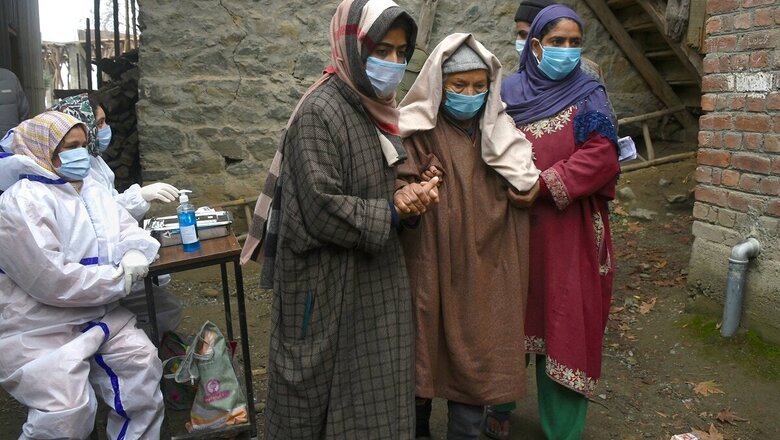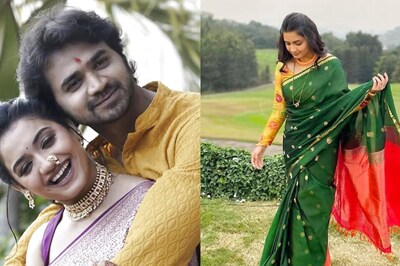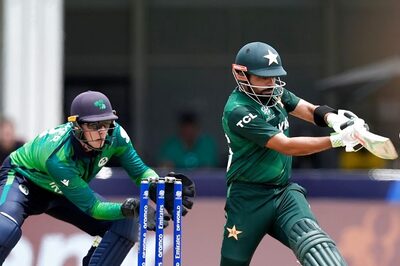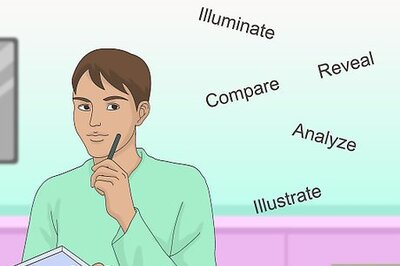
views
The votes will be counted on December 22, revealing the results of the keenly-watched District Development Council
(DDC) polls in the union territory of Jammu and Kashmir. The elections have assumed huge significance, being the first such democratic exercise in J&K following the dilution of Article 370 of the Constitution in August 2019.
The Bharatiya Janata Party and its main rival the Gupkar Alliance are seeking vindication of the extreme positions they have taken on the issue of the erstwhile state of Jammu and Kashmir being stripped of its special status and rearranged into the union territories of J&K and Ladakh. The Gupkar Alliance — a coalition of Kashmir-based parties — through a hotchpotch of views on many aspects, has seen its members find a common cause in fighting for reinstatement of Jammu and Kashmir’s special constitutional position.
The BJP maintains that those provisions of Article 370 are dead, buried and non-negotiable. It instead is harping on building a ‘Naya Kashmir’ (New Kashmir) — one with huge infrastructure and avenues for better education, healthcare, jobs, roads, rivers and rail networks. And it promises to stamp out militancy, corruption, blue tape, and encourage a new set of leaders who would speak development rather than rhetoric.
Getting their act together
Rivalries apart, observers say the Centre should thank the Gupkar Alliance for ensuring healthy participation in the electoral process by the people in Kashmir if not in the BJP stronghold of the Jammu plains. The Alliance took a huge risk and fought back criticism when it decided to contest the elections. Its leaders were in quandary whether to join or skip the polls. Joining would mean betraying the sentiments of locals who felt hurt and humiliated by the divisions and demotion of the state into two union territories. Skipping them would give the BJP and affiliates a free run to sweep the elections without a contest. So it chose to participate, though top leaders did not canvass, suggesting the polls were foisted on them.
In a way, the Kashmir parties were compelled not to leave any space for the BJP. Not joining would have weakened the support structure of the National Conference, Peoples Democratic Party and People’s Conference, considering their followers would have leaned towards the BJP in the absence of a chain of command during months of detention of the leadership. The PDP, in particular, had suffered massive dissensions and had not Omar Abdullah held his flock together, the same would have happened to the oldest J&K party.
Following the watering down of Article 370, the parties were hit by inertia and they joined the poll bandwagon to rejuvenate the demoralised cadre and stop them from being poached or looking for greener pastures.
The decision to take on the BJP unitedly also gave the supporters a reason to campaign and mobilise support notwithstanding the allegations levelled by its top leaders that the administration favoured the BJP and its friends with more security and movement. Militants and the cornered separatist quarters chose not to oppose the polls, sending a clear signal that boycott was not an answer this time around.
The seventh phase of polling was held on Wednesday with the eighth and final phase on Saturday. A young voter told us at a polling booth in the sensitive Wakura locality in Ganderbal district that he and his friends were casting ballots without any fear, shame or confusion, because their agenda was clear: to vote out all those who are against J&K’s special status. ”This booth would usually see more stone-throwing than voting. Only hardcore workers would dare to vote here. Polling has never been so free and open as today,” he said, queuing up with his friends to cast his ballot.
Residents in Singhpora in Baramulla said they have a different reason to vote. ”We don’t know the BJP and Gupkar business. The voting mela (pointing to the large number of voters) is because we support a candidate from our village. For the past 50 years, we have had no drinking water facility. We hope she addresses it,” said a youngster.
In Khan Sahib, Budgam, residents voted to get their lanes paved, culverts and canals fixed, while in Naira village of Pulwama, people, though very few in number, voted ”to protest PDP youth president Waheed Para’s arrest by NIA”.
A candidate from the Gujjar community in Shopian said he was standing up for the rights of forest dwellers who have been stopped from working on lands there by the government. ”How will the poor earn their bread? They have tilled the land for generations. Where will they work?” he said. He admitted local issues were critical but said the fight to restore identity and dignity was driving people to the booths.
Will the Gupkar arrangement continue for future polls?
Mohammad Saeed Malik, noted Kashmiri columnist, is of the view that both the BJP and Gupkar Alliance will sharpen their attacks on each other after the results. The two are looking at vindication of the positions they have taken on Article 370. “If Gupkar wins, it will target the Centre on revocation of special status and if BJP gets a lead, it will build on its narrative that the alliance leaders have been discarded for keeping J&K backward,” he said. The BJP has disapproved of dynasty politics, accusing the Abdullahs and Muftis of corruption, and blocking the development of the erstwhile state. Dr Farooq Abdullah, who heads the Gupkar Alliance, has been summoned more than once by central agencies for an alleged scam in the Jammu and Kashmir Cricket Association. The Abdullahs and Muftis have hit out at the Centre for using investigating bodies to arm-twist them and build a fake narrative around corruption and nationalism. Mufti even dared the Centre to arrest her if there is any proof against her.
Commentator Malik is not sure if the alliance will stick together for the assembly polls, which will anyway be held after a delimitation exercise. “No one knows whether the goalposts will shift at that time and what shape and hue the polity of Kashmir would attain,” he said.
Kashmir’s two main parties have fought bitter electoral battles in the past 24 years, but not once have they supported each other’s agenda though their polity has always veered on seeking autonomous arrangement with the Government of India.
Malik says irrespective of the DDC poll results, the Centre’s politics or position on Kashmir will not change. ”Assuming Gupkar wins and you get a sense of which way J&K voted, it will hardly make any difference. There will be no change. Article 370 is a big national issue. Elections are fought on it,” he said, pointing out that in the recent Bihar elections, Article 370 was a major plank for the BJP along with Ram Mandir, Covid-19 and the plight of migrant labourers.
The DDC elections gave the local parties an opportunity to gain ground and connect with people after a new arrangement was set in place post August 2019, he said.
Will the DDCs redress issues?
The government has said the councils, empowered under the J&K Panchayati Raj Act of 1989, are designed to streamline development across the 20 districts of J&K. It has even spelled out how grassroots representatives can identify a local “non security” issue, plan and execute it by working in tandem with the executive. The DDCs will be flush with funds to execute works without any hassle.
Senior columnist Muzamil Jaleel, however, believes post August 5, 2019, the essential purpose of the district councils is to end all politics in Kashmir, permanently. In a recent essay, he wrote that traditional pro-India politics will now be limited to municipal issues, with those “elected” to run the system mandated to speak only about repairing roads or cleaning toilets. And as this new version of democracy will be sequestered in districts with no central set, the effective rulers will, with the thinnest of facades, be non-local bureaucrats led by the lieutenant governor appointed by Delhi.
He noted that the traditional pro-India political structure, in fact, was already being decimated. “There were a few issues they weren’t ready to compromise on out of political expediency, but they could not build enough pressure to force Delhi’s hand on crucial issues,” he said.
”Delhi has set up a new stage for a new breed of miniature puppets,” he wrote about the DDCs. Will the councils make any difference to the people on the ground would be known once the DDCs are up and running.
Read all the Latest News, Breaking News and Coronavirus News here




















Comments
0 comment